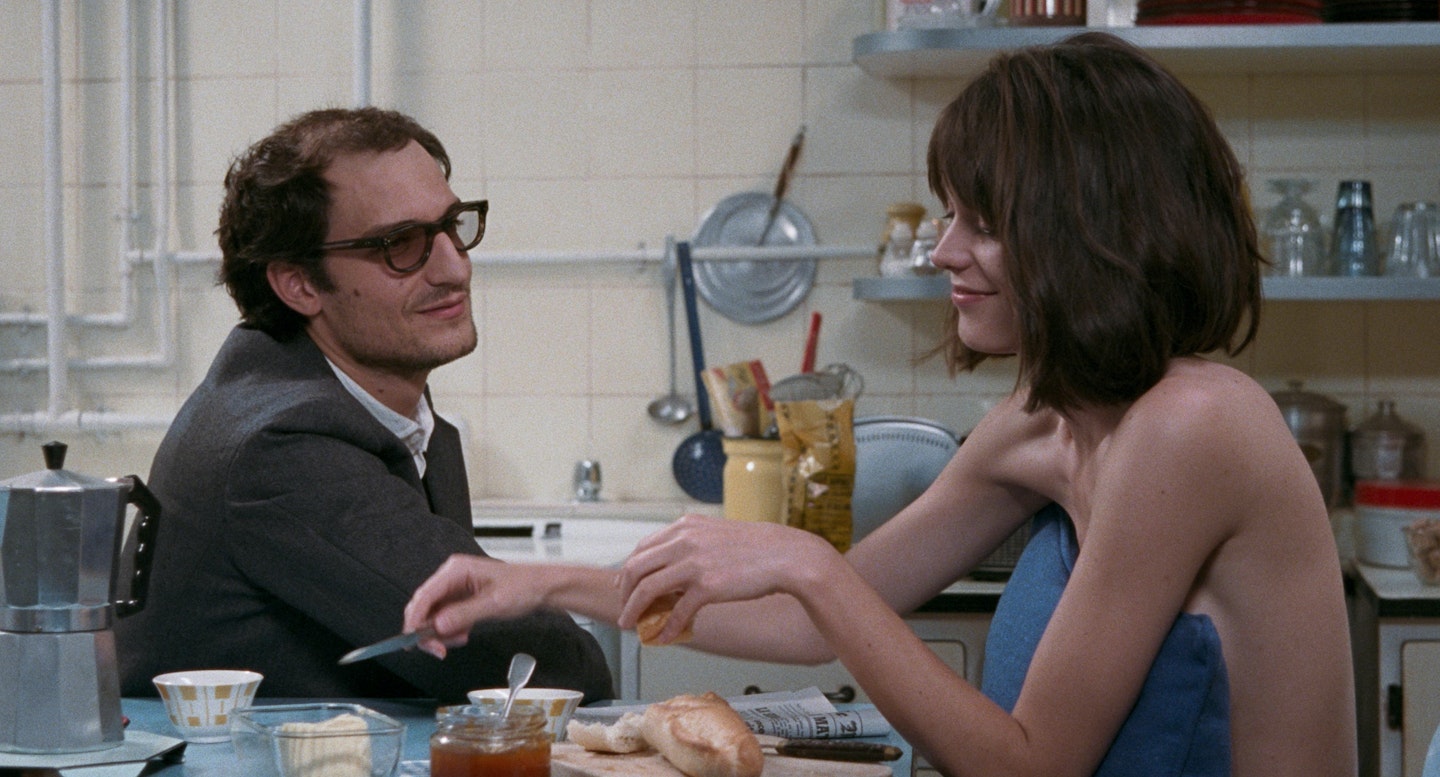James Joyce gave us* Portrait Of The Artist As A Young Man*; The Artist director Michel Hazanavicius here looks at arthouse hero Jean-Luc Godard and gives us ‘Portrait Of The Artist As An Insufferable Nightmare’.
The source material is a book by Godard’s former wife, a sad story of a young woman learning narcissists are incapable of love. There’s a certain iconoclastic glee in how Redoubtable presents one of the monstres sacrés of French culture as at best an irritant, at medium a total bellend, and at worst a philotyrannical anti-Semite — in one scene he attempts to impress a room of students by comparing Israel to Nazi Germany. To their credit, they tell him where to go.

Hazanavicius has his fun with his smartarse New Wave pastiches, but the core of his film is about how a self-important goon treats a blameless young woman terribly, then gets away with it — having only a lifetime of adulation to look forward to. The issue comes from how aware (or not) the film is of its subject’s shortcomings — the base and superstructure of this film’s tones just don’t mesh, and they together pull it apart amid clouds of Gauloise smoke and unresolved contradictions.
The base and superstructure of this film’s tones just don’t mesh.
That’s not to say there’s not plenty here for a particularly pretentious game of bingo: everything from the film-negative imagery of Alphaville to Bardot’s entrance in Le Mépris is quoted, along with the saturated colours and title card gags found all over mid-’60s Godard. Hazanivicius has clearly done his homework, as has Louis Garrel — his lisp and slight Swiss accent are spot on, and he’s an absolute ringer for Jean-Luc himself. We’re ably shown Godard wasn’t a character you’d want to share a long car journey with in a scene where five other people must do just that, Garrel brilliantly hamming up the genius artiste’s frustrations in a long single take where he fulminates about everything from how he doesn’t know any peasants to how he’s gone off John Ford.
Stacy Martin does good work, too, as his wife in what’s a far less showy part: much of her time is spent listening to Garrel spouting Maoist claptrap, and she capably distinguishes the moments where she is infatuatedly listening to her genius lover critique the emptiness of consumer capitalism from when she is simply tolerating him.
And yet, Godard was (and still is) a commanding figure as much as he’s a confounding one, and there can be no denying his importance to film history. Sadly, though, his retreat post-1968 into impenetrable revolutionary agitation is one of the great artistic abdications of the 20th century. Despite this, he probably deserves better than a film that can’t decide if he’s truly a fool to be mocked, or just a bad husband.
And he definitely deserves to have a film actually take him more than half seriously.
